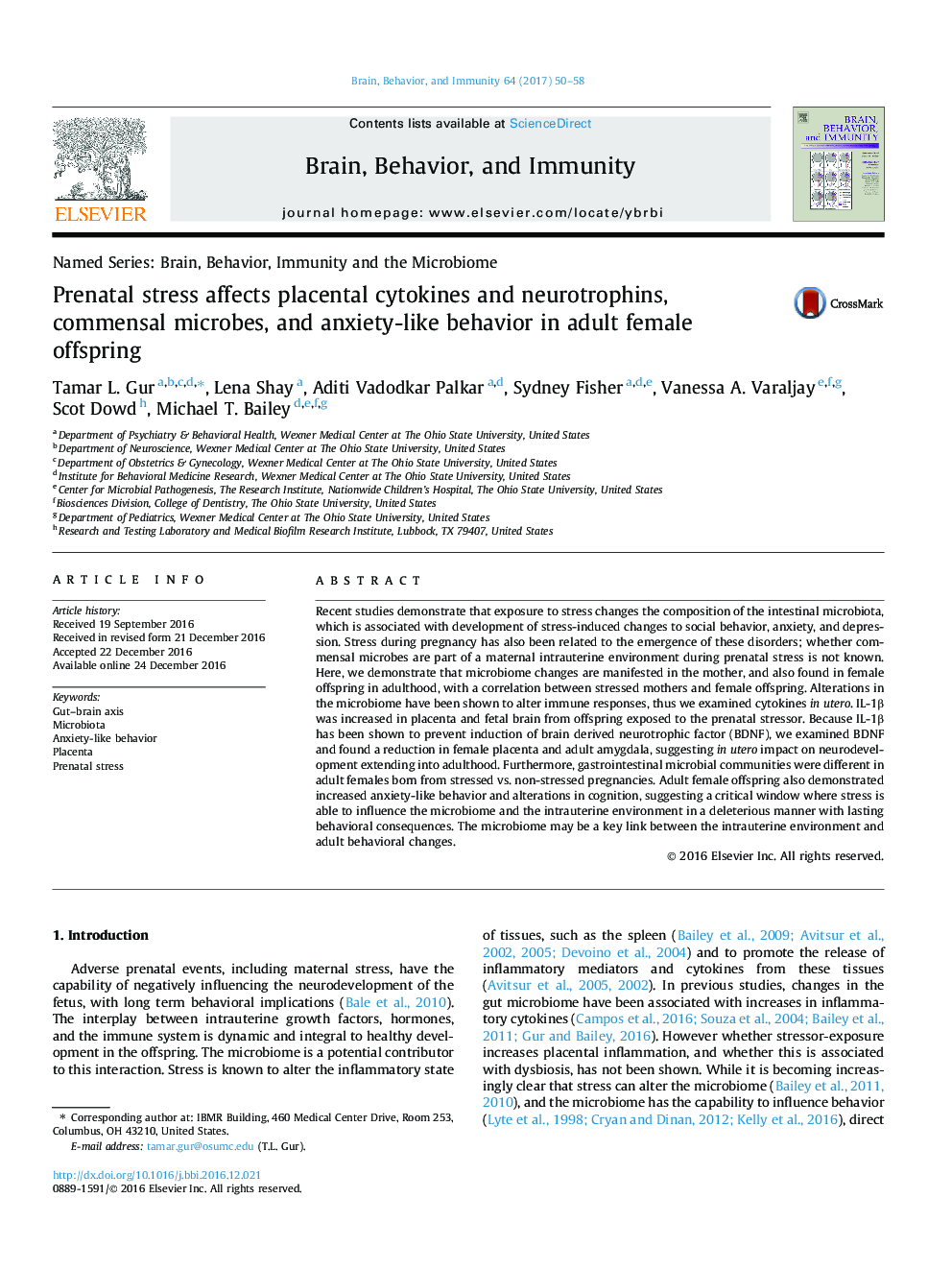| کد مقاله | کد نشریه | سال انتشار | مقاله انگلیسی | نسخه تمام متن |
|---|---|---|---|---|
| 5040620 | 1473903 | 2017 | 9 صفحه PDF | دانلود رایگان |
- Prenatal stress is associated with changes in fecal microbiota in pregnant females.
- Microbial changes are accompanied by IL-1β mRNA levels in utero.
- Prenatal stress decreases BDNF in utero and in adulthood.
- Microbiome changes are found in adult females and correlate with maternal changes.
- Anxiety and cognitive changes accompany microbial, IL-1β, and BDNF alterations.
Recent studies demonstrate that exposure to stress changes the composition of the intestinal microbiota, which is associated with development of stress-induced changes to social behavior, anxiety, and depression. Stress during pregnancy has also been related to the emergence of these disorders; whether commensal microbes are part of a maternal intrauterine environment during prenatal stress is not known. Here, we demonstrate that microbiome changes are manifested in the mother, and also found in female offspring in adulthood, with a correlation between stressed mothers and female offspring. Alterations in the microbiome have been shown to alter immune responses, thus we examined cytokines in utero. IL-1β was increased in placenta and fetal brain from offspring exposed to the prenatal stressor. Because IL-1β has been shown to prevent induction of brain derived neurotrophic factor (BDNF), we examined BDNF and found a reduction in female placenta and adult amygdala, suggesting in utero impact on neurodevelopment extending into adulthood. Furthermore, gastrointestinal microbial communities were different in adult females born from stressed vs. non-stressed pregnancies. Adult female offspring also demonstrated increased anxiety-like behavior and alterations in cognition, suggesting a critical window where stress is able to influence the microbiome and the intrauterine environment in a deleterious manner with lasting behavioral consequences. The microbiome may be a key link between the intrauterine environment and adult behavioral changes.
Journal: Brain, Behavior, and Immunity - Volume 64, August 2017, Pages 50-58
